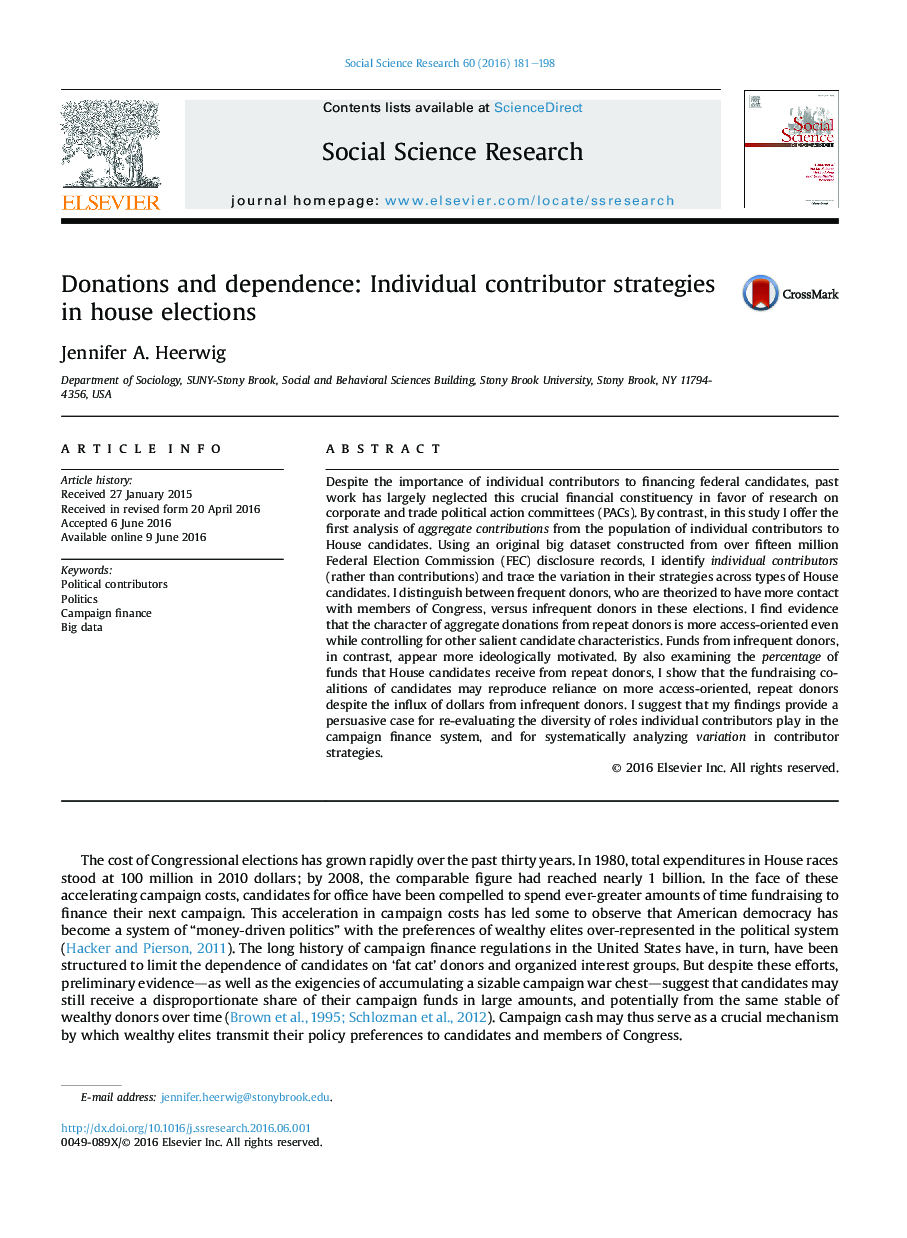| Article ID | Journal | Published Year | Pages | File Type |
|---|---|---|---|---|
| 5047092 | Social Science Research | 2016 | 18 Pages |
Despite the importance of individual contributors to financing federal candidates, past work has largely neglected this crucial financial constituency in favor of research on corporate and trade political action committees (PACs). By contrast, in this study I offer the first analysis of aggregate contributions from the population of individual contributors to House candidates. Using an original big dataset constructed from over fifteen million Federal Election Commission (FEC) disclosure records, I identify individual contributors (rather than contributions) and trace the variation in their strategies across types of House candidates. I distinguish between frequent donors, who are theorized to have more contact with members of Congress, versus infrequent donors in these elections. I find evidence that the character of aggregate donations from repeat donors is more access-oriented even while controlling for other salient candidate characteristics. Funds from infrequent donors, in contrast, appear more ideologically motivated. By also examining the percentage of funds that House candidates receive from repeat donors, I show that the fundraising coalitions of candidates may reproduce reliance on more access-oriented, repeat donors despite the influx of dollars from infrequent donors. I suggest that my findings provide a persuasive case for re-evaluating the diversity of roles individual contributors play in the campaign finance system, and for systematically analyzing variation in contributor strategies.
